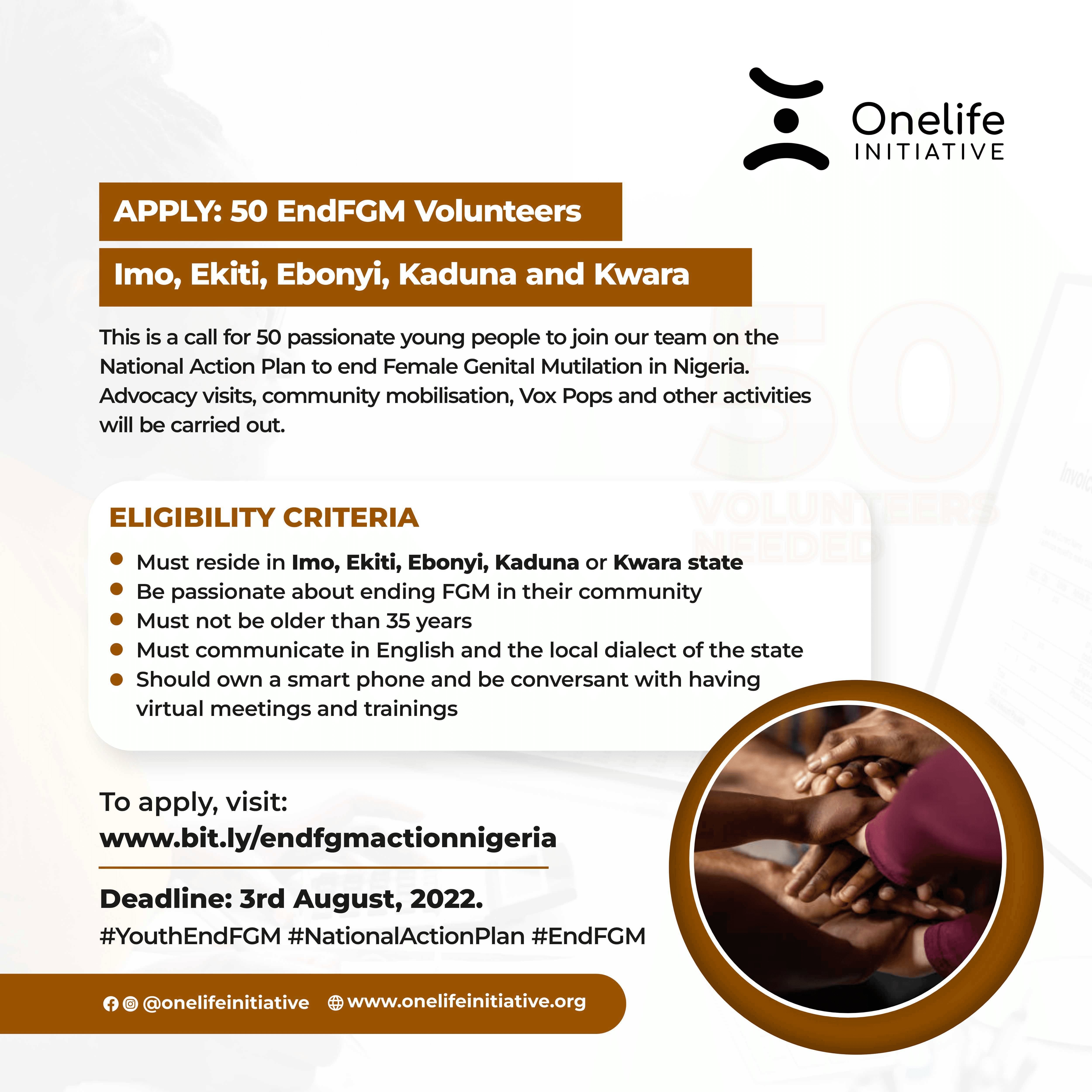5 things Every Adolescent Girl Needs to Know About Menstruation
Here we go again talking about the big ‘M’ a lot shy away from. The silence around it makes it look like it’s not there. But yes, it is there and will always be, till menopause of course! A lot of girls dread the three to seven days of menstruation, like it comes with different forms of challenges and it practically pauses the time. The monthly period does not respect your emotions towards it, it’s there and the best we can do about it is to discuss ways to make it a better experience. After all, it is not a punishment neither a plague; it is a normal biological process of the female body.
Here are the five basic things you need to know about that red visitor:
1. The Biology behind Menstruation
Someone’s mind is screaming — Biology again! This is not another biology class. But then, have you wondered; why do females have to menstruate? Where does the blood come from? Why all the body change that comes with menstruation? Let’s hit the explanations right away. The menstrual cycle is a monthly shedding of blood that occurs in females during their reproductive years. A woman has an average of 450 menstrual cycles over about 38 years of her life. Menstruation is naturally part of a woman’s reproductive cycle. The ovaries release an egg (this process is called ovulation) and if the egg is not fertilised, the lining of the uterus sheds through the vagina, this is the blood seen during the menstrual period. Most girls start menstruating between ages 11 to 13; however, it can start at any time between ages 8 and 17. Menstruation signals puberty. The hormones produced in the body are responsible for the body changes. The menstrual cycle has four phases which are the pre-ovulation (follicular phase), ovulation, luteal phase and menstruation. Women have two ovaries that contain thousands of eggs, hormones stimulate the development of the egg and the uterus lining begins to thicken to prepare for a foetus. Ovulation is the release of a mature egg from the ovaries through the fallopian tube, if there is sexual intercourse around this period; the egg can be fertilized and then develops into an embryo. Ovulation occurs around 10 to 16 days of the menstrual cycle, averagely on day 14. Luteal phase occurs when hormones prepare the walls of the uterus to hold a fertilized egg, if the woman gets pregnant, the egg attaches to the uterus and if not, the lining of the uterus is shed away during the last phase, menstruation. It is a normal and healthy process; its commencement marks the transition between childhood to womanhood.
2. How to track your Period
Have ever been in a situation where someone taps you at a bus stop in Nigeria and tells you, you are stained… Oops! That is always an awkward moment especially if you are in a public place. This and other body changes that come with menstruation can be properly planned and thereby avoid unnecessary embarrassment. Tracking your period is very essential in other to have a stress freecycle. The menstrual cycle is counted from day one of the period to the day before your next period. For instance, if you start menstruating on the 5th of April and started another period on the 4th of May, it means your cycle is 29 days. Menstrual cycle varies from one person to another and this can be between 21 to 35 days depending on your body system. The cycle may not be very stable in the first two years of commencement however, it becomes regular with time and then can become unstable again based on weather, stress level and other body processes. To start tracking your period, you have to record or mark the date your period start for some months and take note of the number of days. With this, you can fairly predict the date of your next period and prepare necessary materials you will need so as not to be caught off guards. You can also study the body changes that accompany your period such as tender breast, mood swings, pimples, etc.
3. Menstrual Hygiene Materials
This is the first point of call for every girl that bleeds; a material is needed to absorb the blood during menstruation. Menstrual Hygiene Management is an essential part of menstrual cycle which entails the use of clean MHM material (e.g. sanitary pad, tampons, menstrual cups, etc.) to absorb or collect blood that could be changed in privacy as often as necessary during the period. It also entails use of soap and water for a proper bathe and having access to dispose of used sanitary material off properly. Sanitary pads are the most common MHM material in Nigeria, however, a lot of girls cannot afford to make use of the pads because of the economic implications. Piece of clothing materials properly kept and managed by regular changing, washing and disinfection is another alternative although this comes with more responsibility. Another material that can be used is re-useable menstrual cups. The menstrual cup is inserted into the vagina, removed, disinfected and can be reused as long as it has no breakage or leak. Washable or reusable menstrual pads (sanitary napkins) can also be used. Knowing about the possible option of products to use is one thing, understanding how to manage the waste product is another major thing that should be considered when picking an MHM material.
4. Ways of having a better menstrual experience
Some girls naturally do not feel any pain or mood swings during their period while a lot of girls experience dysmenorrhea (painful period), mood swings, headache, among others during their monthly periods. Body systems of individuals are structured differently and experiences differ from one person to the other, however, your goal is to understand yourself and enjoy your life even on a day you are menstruating. Things you can do to improve your menstrual experience include the following:
- Drink adequate water to stay hydrated.
- Stay active. Your instinct may want to trick you into staying in bed all day long but that does not really help. Light exercises to make your body move and stretch out helps ease the process.
- Eat healthly. Cutting down on highly processed foods, sweet drinks, caffeine intake and cold drinks help.
- Take hot tea or use a heating pad
- Have adequate rest and sleep
5. Warning signs
Irregular menstrual cycle is one thing you look out for. For young girls that just started menstruating, the cycle may not be very regular however; this stabilizes within the first 1 or 2 years. The body also adjusts to stress, strenuous exercises, nutritional imbalances, use of contraceptives and hormonal drugs which could affect the menstrual cycle. Body changes that go beyond the normal range call for medical attention, it might indicate a malfunction in hormone production, body organ or just an infection. Danger signs that call for urgent attention include irregular menstrual cycle, heavy bleeding, unusual dysmenorrhea and any other unusual body change. These entail not seeing your period for about 3 months (and you are not pregnant), irregular periods, heavy bleeding for more than seven days, period less than 21 days or more than 35 days apart, severe pain during period, spotting (short bleeding when you are not menstruating) etc.
Menstruation is a normal body process for an adolescent girl or a lady, embrace it with a positive mindset and enjoy life even on your bleeding days. Menstruation should not stop you from socializing, going to school or becoming what you want to be, don’t be held back. Do not skip school or vocational training because of menstruation. Take charge!



